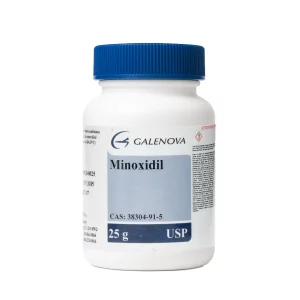Your cart is empty.

Your cart is empty.
Hair loss is a common issue affecting millions worldwide, including men, women, and aging adults. While it’s a natural part of aging, genetics, hormonal changes, stress, and poor diet can also contribute to hair loss.

Buy Minoxidil to support hair growth, scalp health, and overall vitality. Maintain a fuller, healthier appearance with this trusted solution.
Hair loss medication have become a popular solution to support hair growth, strength, and scalp health. These medications provide essential nutrients to hair follicles, promoting healthy growth and reducing breakage. By nourishing the hair follicles, medications can help thicken and strengthen hair, reduce shedding, and promote a healthy scalp.
Understanding how hair loss medication works and their key ingredients can help you make informed decisions about your hair care routine, allowing you to take a proactive approach to achieving healthy, full, and vibrant hair. This knowledge can empower you to find the right solution for your hair loss concerns.
Hair loss medication is specially designed products that contain essential vitamins, minerals, and bioactives aimed at reducing hair shedding and promoting healthy hair regrowth. Unlike topical treatments or pharmaceutical medications applied directly to the scalp, hair loss medications are typically taken orally, usually daily. They work from the inside out to nourish the hair follicles, support hair growth, and strengthen hair strands. These medications provide the necessary nutrients for healthy hair production, helping to thicken and lengthen hair over time. While they may not produce overnight results, consistent use of hair loss medication can lead to noticeable improvements, such as reduced shedding, thicker hair, and a healthier scalp.
By incorporating these medications into your daily routine, you can take a proactive approach to achieving healthy, full, and vibrant hair. With patience and consistent use, hair loss medication can be a valuable tool in promoting hair regrowth and reducing hair loss.
Hair loss medication works by nourishing hair follicles and improving scalp circulation, promoting healthy hair growth. They often contain essential nutrients like iron, biotin, and vitamin D that can be lacking in our diets. When we’re deficient in these nutrients, it can contribute to hair loss. By taking medications, we can address these deficiencies and give our hair the nutrients it needs to grow strong and healthy. This can lead to thicker, fuller hair and a reduction in shedding. By supporting hair health from the inside out, medications can be an effective way to combat hair loss. Regular use can help to strengthen hair strands, reduce breakage, and promote a healthy scalp environment. With the right nutrients, hair can grow longer, thicker, and more resilient, reducing the appearance of thinning and balding. This can boost confidence and overall hair well-being.
Avodart:
Avodart helps reduce hair loss by blocking DHT at the hormonal level, supporting healthier, fuller hair from the inside out.
Minoxidil:
Minoxidil is a topical solution that boosts scalp circulation and stimulates hair follicles to encourage regrowth and reduce shedding.
Rapamune:
Rapamune is an emerging option in hair loss therapy, believed to support follicle longevity and scalp health through cellular rejuvenation.
Dasatinib:
Dasatinib is under investigation for its potential to promote hair regeneration by targeting cellular aging pathways involved in follicle health.
By choosing the right medication, individuals can find a solution that fits their lifestyle and hair loss concerns, helping to promote healthy, full, and vibrant hair. These medications can be a valuable addition to a hair care routine.
The benefits of hair loss medication include:
Additional potential benefits:
Keep in mind that individual results may vary based on factors like:
By incorporating a hair loss medication into your daily routine, you may experience these benefits and achieve healthier, more vibrant hair.
Hair loss medications can be effective for some people, promoting hair growth and reducing shedding, but results vary individually.
Hair loss can be caused by genetics, hormonal changes, stress, poor diet, medical conditions, and certain medications or treatments.
To determine the type of hair loss, consult a dermatologist or healthcare professional for a personalized evaluation and diagnosis, considering factors and symptoms.



